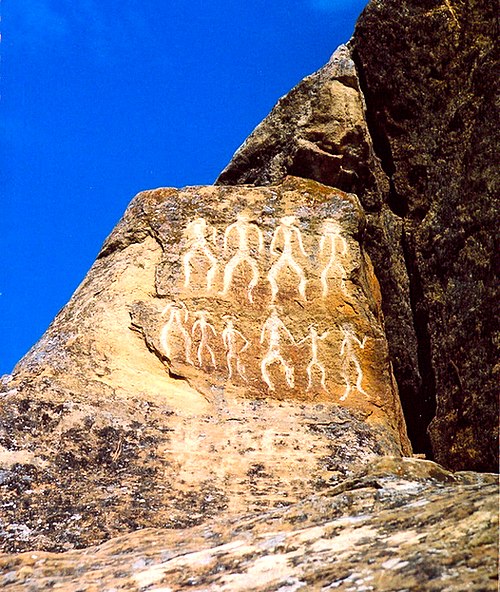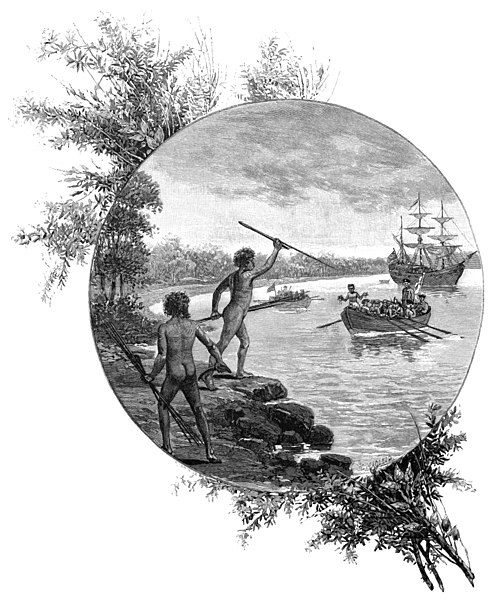Civilizationnoun
An organized culture encompassing many communities, often on the scale of a nation or a people; a stage or system of social, political, or technical development.
Civilizationnoun
(uncountable) Human society, particularly civil society.
Civilizationnoun
The act or process of civilizing or becoming civilized.
Civilizationnoun
The state or quality of being civilized.
Civilizationnoun
(obsolete) The act of rendering a criminal process civil.
Civilizationproper noun
Collectively, those people of the world considered to have a high standard of behavior and / or a high level of development. Commonly subjectively used by people of one society to exclusively refer to their society, or their elite sub-group, or a few associated societies, implying all others, in time or geography or status, as something less than civilised, as savages or barbarians. cf refinement, elitism, civilised society, the Civilised World
Civilizationnoun
The act of civilizing, or the state of being civilized; national culture; refinement.
Civilizationnoun
Rendering a criminal process civil.
Civilizationnoun
a society in an advanced state of social development (e.g., with complex legal and political and religious organizations);
Civilizationnoun
the social process whereby societies achieve civilization
Civilizationnoun
a particular society at a particular time and place;
Civilizationnoun
the quality of excellence in thought and manners and taste;
Civilization
A civilization (or civilisation) is a complex society that is characterized by urban development, social stratification, a form of government, and symbolic systems of communication (such as writing).Civilizations are intimately associated with and often further defined by other socio-politico-economic characteristics, such as centralization, the domestication of both humans and other organisms, specialization of labour, culturally-ingrained ideologies of progress and supremacism, monumental architecture, taxation, societal dependence upon farming and expansionism.Historically, has often been understood as a larger and culture, in implied contrast to smaller, supposedly primitive cultures. In this broad sense, a civilization contrasts with non-centralized tribal societies, including the cultures of nomadic pastoralists, Neolithic societies or hunter-gatherers; however, sometimes it also contrasts with the cultures found within civilizations themselves.
Culturenoun
the arts, customs, lifestyles, background, and habits that characterize a particular society or nation
Culturenoun
the beliefs, values, behaviour and material objects that constitute a people's way of life
Culturenoun
(anthropology) any knowledge passed from one generation to the next, not necessarily with respect to human beings
Culturenoun
(botany) cultivation
Culturenoun
(microbiology) the process of growing a bacterial or other biological entity in an artificial medium
Culturenoun
the growth thus produced
Culturenoun
the collective noun for a group of bacteria
Culturenoun
(cartography) the details on a map that do not represent natural features of the area delineated, such as names and the symbols for towns, roads, meridians, and parallels
Cultureverb
(transitive) to maintain in an environment suitable for growth especially of bacteria cultivate}}
Cultureverb
(transitive) to increase the artistic or scientific interest in something cultivate}}
Culturenoun
The act or practice of cultivating, or of preparing the earth for seed and raising crops by tillage; as, the culture of the soil.
Culturenoun
The act of, or any labor or means employed for, training, disciplining, or refining the moral and intellectual nature of man; as, the culture of the mind.
Culturenoun
The state of being cultivated; result of cultivation; physical improvement; enlightenment and discipline acquired by mental and moral training; civilization; refinement in manners and taste.
Culturenoun
The cultivation of bacteria or other organisms (such as fungi or eukaryotic cells from mulitcellular organisms) in artificial media or under artificial conditions.
Culturenoun
Those details of a map, collectively, which do not represent natural features of the area delineated, as names and the symbols for towns, roads, houses, bridges, meridians, and parallels.
Cultureverb
To cultivate; to educate.
Culturenoun
a particular society at a particular time and place;
Culturenoun
the tastes in art and manners that are favored by a social group
Culturenoun
all the knowledge and values shared by a society
Culturenoun
(biology) the growing of microorganisms in a nutrient medium (such as gelatin or agar);
Culturenoun
(bacteriology) the product of cultivating micro-organisms in a nutrient medium
Culturenoun
a highly developed state of perfection; having a flawless or impeccable quality;
Culturenoun
the attitudes and behavior that are characteristic of a particular social group or organization;
Culturenoun
the raising of plants or animals;
Culture
Culture () is an umbrella term which encompasses the social behavior and norms found in human societies, as well as the knowledge, beliefs, arts, laws, customs, capabilities, and habits of the individuals in these groups.Humans acquire culture through the learning processes of enculturation and socialization, which is shown by the diversity of cultures across societies. A cultural norm codifies acceptable conduct in society; it serves as a guideline for behavior, dress, language, and demeanor in a situation, which serves as a template for expectations in a social group.























